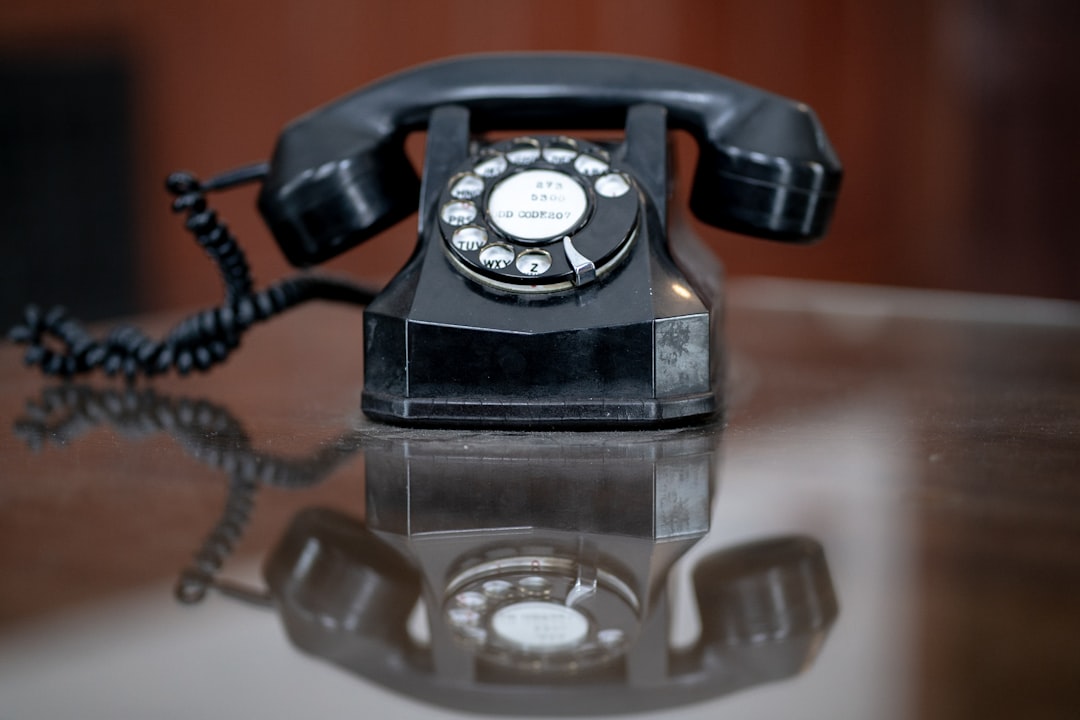Philadelphia residents facing relentless robocalls from automated business systems have legal recourse. The Telephone Consumer Protection Act (TCPA) and local Phone Consumer Protection Act (PCPA) protect against unsolicited marketing calls, including those made using sophisticated autodialers. Specialized autodialer lawyers and law firms in Philadelphia assist individuals in understanding their rights, filing complaints, and seeking compensation for harmful intrusive calls. These professionals navigate complex legislation, gather evidence, and represent clients in TCPA cases to stop unwanted calls and ensure consumer protection.
“Tired of unwanted phone calls flooding your days? In Philadelphia, your privacy is protected against autodialed marketing calls by state and federal laws. This comprehensive guide explores your rights under the Phone Consumer Protection Act (PCPA) and how to identify and stop these intrusions. Learn about the legal framework that serves as your shield, evidence required to prove an autodialer’s use, and your options for taking action with expert advice from top-rated autodialer lawyers and attorneys in Philadelphia.”
Understanding Autodialed Calls: How They Violate Your Privacy

In today’s digital era, many people in Philadelphia and across the country are facing an increasing number of autodialed calls, often from automated systems used by businesses to reach potential customers. These calls, typically known as robocalls, can be intrusive and violate your privacy. They often use sophisticated technology that quickly dials thousands of phone numbers, making it difficult for individuals to know who is calling and why.
An autodialer lawyer in Philadelphia can help you understand your rights against such calls. The Telephone Consumer Protection Act (TCPA) was enacted precisely to protect consumers from unsolicited telephone marketing calls, including those made by autodialers. If a business uses an autodialer without your prior express consent, you may have legal recourse. An autodialer attorney in Philadelphia can guide you through the legal process, help you file a complaint, and potentially seek compensation for any harm caused by these unwanted calls.
The Legal Framework: Phone Consumer Protection Act (PCPA) and its Relevance in Philadelphia

In Philadelphia, as in many places across the nation, the Phone Consumer Protection Act (PCPA) plays a pivotal role in safeguarding consumers from unwanted autodialed calls. This federal legislation was designed to curb excessive and intrusive telemarketing practices, ensuring that citizens have control over their phone lines. The PCPA strictly regulates the use of automatic dialing systems, also known as autodialers, which are often employed by businesses for marketing purposes.
Philadelphia residents who feel they’ve been subjected to unlawful autodialed calls have legal recourse. An autodialer lawyer in Philadelphia can guide individuals through this complex legislation, helping them understand their rights and take appropriate action. Established law firms specializing in PCPA cases offer expertise in navigating the legal framework, ensuring that consumers receive fair treatment and protection against intrusive telemarketing tactics.
Proving an Autodialer Was Used: Legal Evidence Requirements

Proving that an autodialer was used in phone calls can be a complex task, especially as technology advances and new methods of communication emerge. In Philadelphia, as in many places, the legal definition of an autodialer is a device that uses an automatic dialing system to place calls without human intervention. To establish this in court, you’ll need concrete evidence. This could include phone records showing a pattern of automated calls, testimony from recipients who heard the distinctive sounds of an autodialer, or expert witness statements confirming the use of such technology.
An autodialer lawyer Philadelphia can assist in gathering and presenting these legal evidences effectively. They often employ forensic techniques to analyze call data records (CDRs) and other digital traces left by automated dialing systems. With the help of an autodialer attorney Philadelphia or a reputable autodialer law firm Philadelphia, you can build a strong case to hold accountable those who misuse autodialers, ensuring your rights are protected under the relevant laws.
Your Rights as a Pennsylvania Resident: Stopping Unwanted Autodialed Calls

As a Pennsylvania resident, you have specific rights when it comes to unwanted autodialed calls. The Telephone Consumer Protection Act (TCPA) is a federal law designed to protect consumers from certain practices in the telemarketing industry, including excessive or unwanted phone calls. If you’re receiving autodialed calls in Philadelphia, you have options.
Hiring an autodialer lawyer Philadelphia, or connecting with an autodialer attorney Philadelphia from a reputable law firm, can help you assert your rights and stop these calls. These legal professionals specialize in TCPA litigation and can guide you through the process of filing a complaint or taking legal action against the companies making the unwanted calls. Don’t hesitate to reach out to an autodialer law firm Philadelphia for assistance; many offer free consultations to discuss your case.
Taking Action: Finding the Right Autodialer Lawyer in Philadelphia

If you’ve been experiencing a surge in unwanted autodialed calls, knowing your rights and taking action is crucial. In Philadelphia, finding an experienced autodialer lawyer can significantly impact the outcome of your case. Look for attorneys specializing in telecommunications law who have a proven track record in handling similar cases. Reputable autodialer attorneys in Philadelphia will possess in-depth knowledge of the Telephone Consumer Protection Act (TCPA) and be adept at navigating its complexities.
Choosing the right autodialer law firm involves considering their expertise, client testimonials, and success rate in winning cases. Top-rated firms often have dedicated teams that can offer personalized guidance tailored to your situation. They will help you understand your options, whether it’s negotiating a settlement or going to court to stop the autodialed calls and seek damages for any emotional distress caused.






